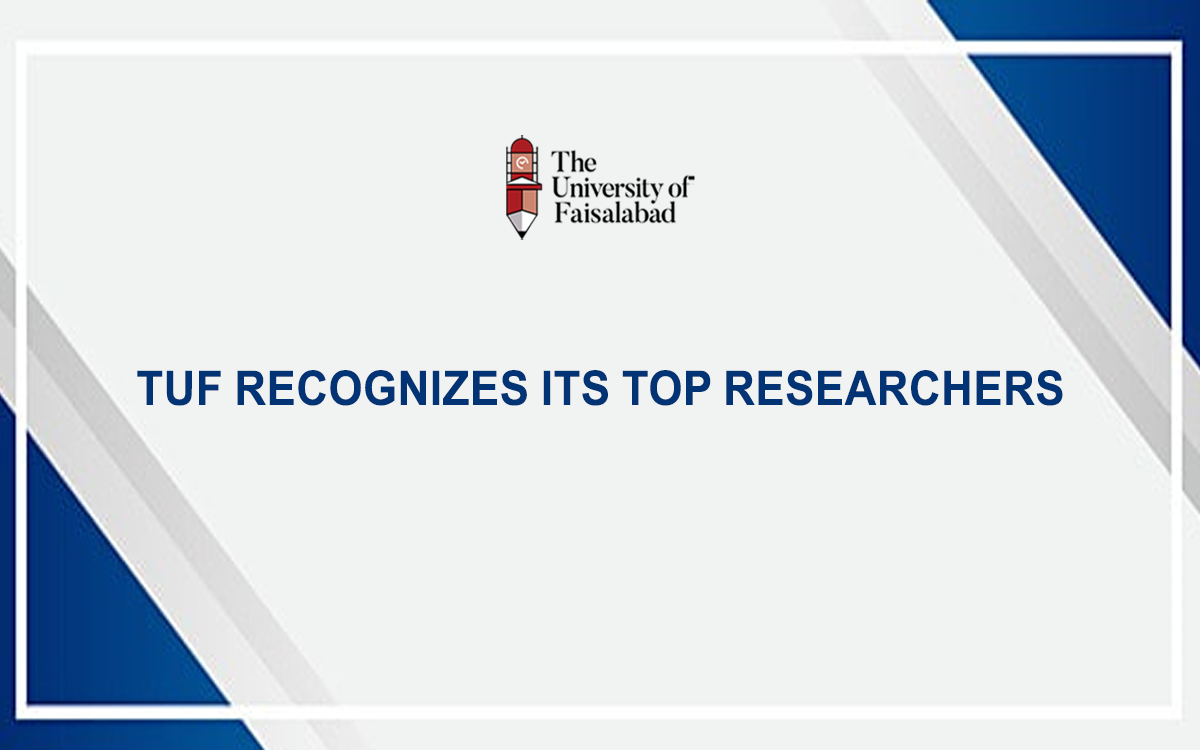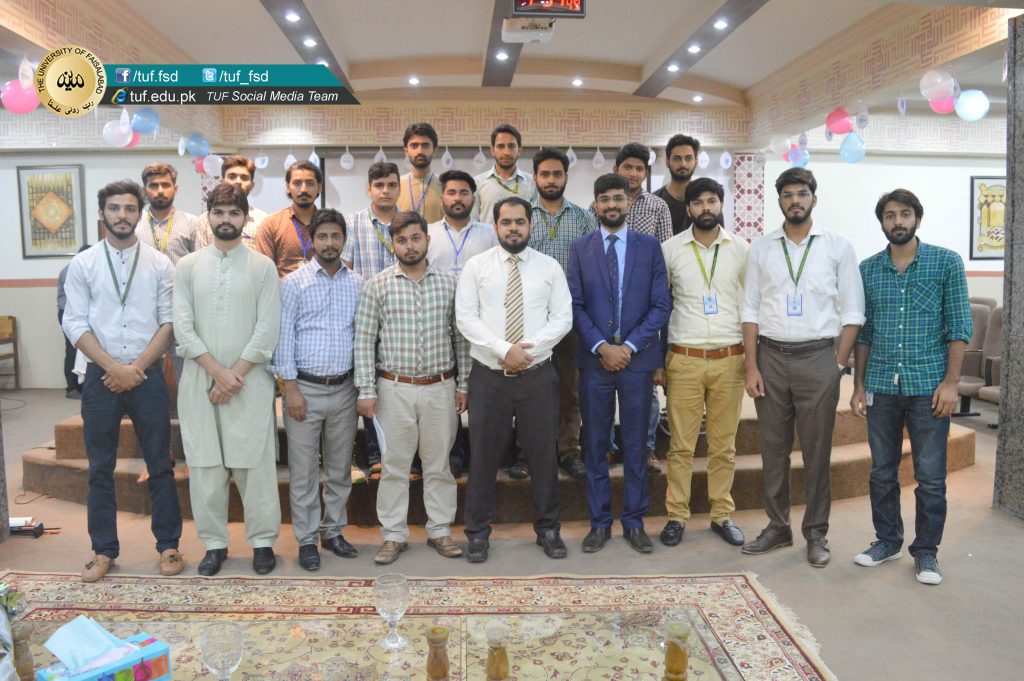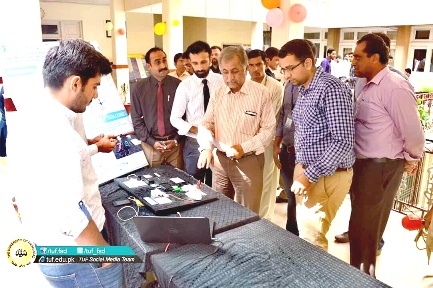
OBJECTIVES
The educational objectives of the BS Engineering Management Program identify what we hope that our graduates will accomplish within a few years after graduation. The objectives of the Electrical Engineering Technology Program are to:
• Achieve positions of increased responsibility (technical and/or supervisory) within an organization in electrical or related fields by leveraging their Electrical Engineering Technology skills and knowledge.
• Address and solve complex technical problems related to power generation, distribution and utilization in the country which is facing power shortage.
• Continue personal and professional growth by engaging in life-long learning; e.g., advanced education/degrees, professional development activities, and/or other career-appropriate options.
• work effectively in teams and communicating effectively within the team and to the its clients.
Career Scope and Opportunities
An Electrical Engineering technologist is a specialist devoted to the implementation of existing technology within a field of engineering. Technologists often work with engineers in a wide variety of projects by applying basic engineering principles and technical skills. The work of technologists is usually focused on the portion of the technological spectrum closest to product improvement, manufacturing and engineering operational functions.
The Electrical Engineering Technology program covers vast areas such as power system analysis, power system protection, Digital Image Processing, control systems, power distribution and utilization, AC/DC machines, analog and digital communication, microprocessor interfacing. The applied scheme of studies has been carefully designed to enhance both academic and professional aspects of Electrical Engineering Technology program. The core courses have been selected to enhance the design and development skills of students in the field of Electrical engineering technology.
The students also take courses in humanities, management and social sciences to develop well rounded personalities. The students in their final year are also required to complete a design or research project in which they apply the knowledge and skills gained during this engineering program. The students must then submit a written report, demonstrate their design and development effort and defend their project before a jury for award of grades.
The scope of BSc Electrical Engineering Technology is getting higher with the advancement of technology. Pakistan is making progress in this field with each of the day. Now we have lot of career build opportunities and job after engineering technology. Our markets and industries have a big demand for well skilled technologist. In upcoming time we are seeing that the technology will keep on boosting toward the progression. That is why we can imagine that how the higher is technology scope in Pakistan could be.
Semester 1
| Course Code | Course Title | Credit Hours |
|---|---|---|
| ISL-101 | Islamic Studies/Ethics | 2(2-0) |
| ISL-103 | Teaching of Holy Quran with Translation I | 1(1-0) |
| ENG-101 | English I | 3(3-0) |
| CS-101 | Introduction to Information Technology and Communication Skills | 3(2-1) |
| MATH-101 | Mathematics | 3(3-0) |
| PHY-301 | Physics | 3(3-0) |
| Credit Hours | 15 |
Semester 2
| Course Code | Course Title | Credit Hours |
|---|---|---|
| PS 101 | Pakistan Studies | 2(2-0) |
| ENG 102 | English II (Communication Skills) | 3(3-0) |
| ISL 103 | Teachings of Holy Quran with Translation-II | 1(1-0) |
| MGT-112 | Principles of Management | 3(3-0) |
| CS-102 | Computer Programming | 3(1-2) |
| STAT-101 | Statistics | 3(3-0) |
| Credit Hours | 15 |
Semester 3
| Course Code | Course Title | Credit Hours |
|---|---|---|
| ISL 201 | Teachings of Holy Quran with Translation-III | 1(1-0) |
| PSY 201 | Psychology | 3(3-0) |
| ENG 201 | English III (Technical Writing & Presentation Skills) | 3(3-0) |
| MGT 305 | Financial Accounting | 3(3-0) |
| MGT-211 | Principles of Marketing | 3(3-0) |
| EE-214 | Engineering Mechanics | 2(2-0) |
| Credit Hours | 17 |
Semester 4
| Course Code | Course Title | Credit Hours |
|---|---|---|
| GEN 201 | Sociology | 3(3-0) |
| ISL 202 | Teachings of Holy Quran with Translation-IV | 1(1-0) |
| EM-211 | Managerial Decisions | 3(3-0) |
| EM-212 | Differential Equations | 3(3-0) |
| CS-212 | Data Structures and Algorithms | 4(3-1) |
| EE-313 | Signals and Systems | 4(3-1) |
| Credit Hours | 18 |
Semester 5
| Course Code | Course Title | Credit Hours |
|---|---|---|
| EE-312 | Electrical Machines | 4(3-1) |
| EM-311 | Organization structures | 3(3-0) |
| CS-313 | Digital Logic Design | 4(3-1) |
| EE-416 | Microprocessor Systems | 4(3-1) |
| EE-311 | Instrumentation & Measurements | 4(3-1) |
| Credit Hours | 19 |
Semester 6
| Course Code | Course Title | Credit Hours |
|---|---|---|
| EM-312 | Trends in Market | 2(2-0) |
| EM-313 | Organizational Development | 2(2-0) |
| EE-420 | High Voltage Engineering | 4(3-1) |
| EE-318 | Linear Control System | 4(3-1) |
| MGT 301 | Entrepreneurship | 3(3-0) |
| GEN-310 | Research Methodology | 3(3-0) |
| Credit Hours | 18 |
Semester 7
| Course Code | Course Title | Credit Hours |
|---|---|---|
| EM-411 | Industrial Electronics | 3(2-1) |
| EM-412 | Embedded System Design | 3(2-1) |
| EM-413 | Technical Elective | 3(2-1) |
| EM-414 | Project Management for Complex Systems | 3(3-0) |
| EM-415 | Advanced Statistical Methods for Engineering Research | 3(3-0) |
| EM-416 | Numerical Analysis | 3(3-0) |
| Credit Hours | 18 |
Semester 8
| Course Code | Course Title | Credit Hours |
|---|---|---|
| EM-417 | Power System Protection | 4(3-1) |
| EM-418 | Power System Operation & Control | 4(3-1) |
| EM-410 | Research Project | 6(6-0) |
| Credit Hours | 14 |
No FAQs available for this course.
BS-Speech and Language Pathology
ADP Speech Language and Pathology
ADP Human Nutrition and Dietetics
Master of Science in Medical Laboratory Sciences
PhD Urdu
MPhil Urdu


